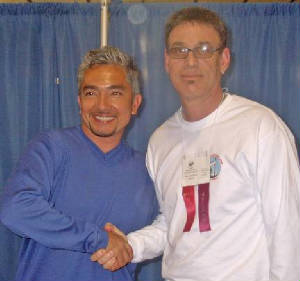Chicago isn’t known for its heat waves. But the weather is getting hotter every year, and that means that we have to make adjustments. One of those adjustments is gaining a better understanding of when to take your dog outdoors, especially with regards to the heat on the street or walkway. When direct sunlight hits the ground, the ground can get hotter than many of us even imagine.
Effects of Direct Sunlight on the Ground
Asphalt and concrete soak in the sun. Asphalt, especially, is known for its excessive heat when it is hit with the sun’s rays. The hotter the day, the worse the heat will be:
- On an 80 degree day, asphalt can reach 100 to 140 degrees.
- On a 90 degree day, asphalt can reach 120 to 150 degrees.
- On a 100 degree day, asphalt can reach 140 to 170 degrees.
Concrete is similar. Concrete doesn’t quite reach the temperatures of asphalt, but even concrete gets quite hot in hot weather when under direct sunlight:
- On an 80 degree day, concrete can get as hot as 100 to 130 degrees.
- On a 90 degree day, concrete can get as hot as 120 to 140 degrees.
- On a 100 degree day, concrete can get as hot as 130 to 150 degrees.
That is still extremely hot.
But, when we walk outside, we may not notice this level of heat. We wear shoes, of course. But our dogs also have adaptations that allows them to walk on hot ground without necessarily yelping or allowing the pain to stop them. That means that your dog may not tell you directly that the ground is too hot. You have to test the ground yourself by putting your hand on it, and you have to pay attention for cues your dog may give you that indicate the ground is too hot.
Dog Cues that the Concrete is Too Hot
Some of these cues include, but are not limited to:
- Taking very high, very fast steps. Your dog may be trying not to allow its feet to stay on the ground for too long.
- Favoring paws. Your dog may start to favor one paw over another as it tries to navigate the heat.
- Licking or biting at paws. This is indicative of pain that your dog is trying to heal from. You may also notice this after the walk when you’re back indoors.
- Seeking shade. Sometimes, dogs will actively try to find a shaded or cool area, which is typically a sign that they’re too hot in general.
- Not moving. If your dog feels overwhelmed by the pain, they may choose to stop moving altogether, especially if they’ve found a cool spot.
Any signs your dog is too hot may also be a sign the ground is too hot. For example, if they start panting excessively, that is often a signal that they are overheating.
Pay Attention to What Your Dog Isn’t Telling You
Dogs can’t talk, and they’re incredibly strong. They withstand pain in ways that we couldn’t imagine, and they won’t always tell us when they’re suffering or when they shouldn’t be outside. That is why it is so important for us to pay attention to the weather, the heat of the concrete/asphalt, and how our dogs are acting on it. That will help to prevent burning their foot pads and causing potential injury.





